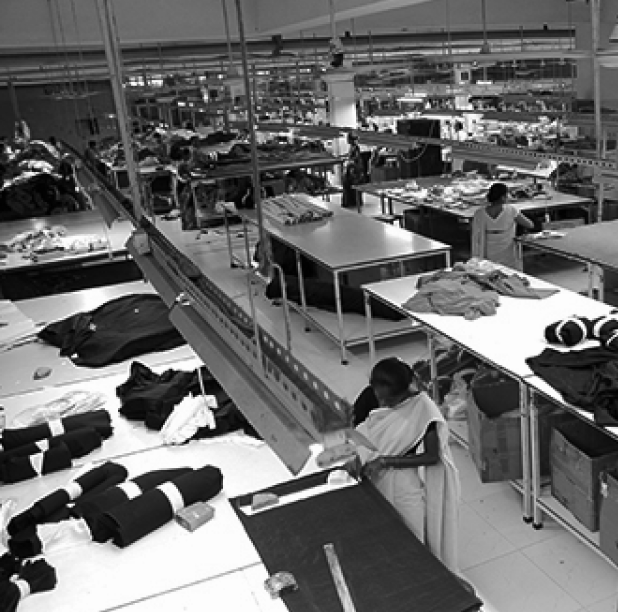

Our factories
Meet our makers
Meet our makers
Our commitment to responsibility impacts on how we source new and existing suppliers, and we believe in co-operation and transparency with regard to compliance from our manufacturing partners.
Here are three factory profiles within our extensive network of factories:
Chinese factory partners
Since our inception, the founders of Slyletica, along with members of the production team, have traveled across Asia to source the latest in innovation for the activewear and athleisure markets. Based on innovation and capabilities, we found China to be ahead of its time. We then dived deeper, searching extensively for factories in China that share our values and ethical ethos.
We have a strict onboarding process for all the factories in our network, and it’s our job to develop personal relationships with managers and workers at each of them. Our Chinese factories are family-run businesses and, for some of them, we are their biggest client.
All our Chinese factories are BSCI certified. What does that mean? BSCI certification is an international standard for fair working conditions and ensures the partners we work with follow ethical practices. It means they are committed to manufacturing under responsible and humane conditions in respect of social, environmental and ethical standards. When clients ask us for fast turnaround times or cheaper pricing, we often have to decline for this reason.
It helps us ensure our factory partners are providing fair remuneration, decent working hours, workplace safety and health, plus the protection of workers’ rights. It also safeguards against discrimination, forced labour and child labour across the supply chain.
We also have China-based factories in our networks that comply with leading international standards for the textile industry.
These include OKEO-TEX® which ensures environmentally friendly and socially responsible production facilities. The Global Organic Textile Standard (GOTS) certification, the world’s leading textile processing standard for organic fibres. The Global Recycle Standard (GRS) which verifies responsible social, environmental and chemical practices in the production of recycled content. And the WRAP certificate, a recognised symbol of commitment to uphold social and ethical standards.
Our factories can work with Sedex, an ethical trade membership organisation that ensures social and environmental performance and improved working conditions throughout the supply chain. Together with BLUESIGN, which traces each textile’s path along the manufacturing process to ensure minimal environmental impact.
Plus, our partners implement enhanced environmental practices such as dying fabric every second day to reduce greenhouse gas emissions, using solar power, energy efficient air dyeing and a closed loop system to save water.
Indian factory partner
Our factory partner in India follows eco-friendly production processes and only works with raw material suppliers who are Global Organic Textile Standard (GOTS) & OEKO-TEX® certified (meaning free from harmful chemicals).
The factory uses fair trade certified organic cotton and bamboo, colours certified free from azo and heavy metals, and oxygen bleach instead of chlorine bleach, plus follows organic dyeing and printing standards.
They are solar plant energy efficient, manage production processes to conserve water and treat waste water to ensure it’s pollution free. The company also has strict social justice laws in place for its factory and suppliers, and steadfastly adheres to regulations regarding child labour and minimum wages.
European factory partner
Our European factory partner is the most efficient and flexible textile plant in the world.
Their sustainable practices include the design and development of fabrics made with natural dye techniques using less resources, organic textiles and recycled fibres, highly efficient, high-tech production designed to international standards, and an in-house operation with total quality management.
Their environmental efforts involve the use of efficient compressed airlines throughout the factory, solar-powered electric panels covering 50 percent of the energy demand, the highest COP VRF systems for maximum energy efficiency, rainwater used as greywater, and decreased water consumption through the use of tap and toilet water sensors.
Taiwanese factory partner
Our Taiwanese factory partner has gone to great lengths in the research and development of green textiles.
They manufacture garments using sustainable materials including organic cotton, recycled polyester, coconut, charcoal and bamboo.
They’ve also been certified by many international organisations to ensure high quality green products and production processes. These include OEKO-TEX® Standard 100, which guarantees all garment components including every thread, button and accessory are free from harmful chemicals. They meet ISO-14001 standards ensuring an effective environmental management system, hold IMO certification to verify the quality assurance of eco-friendly products, plus Control Union certification indicating their devotion to eco textiles and the environment







